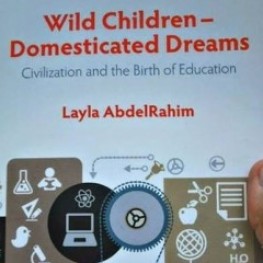edited by Nick Baron
Across Eastern Europe and Russia in the first half of the twentieth century, conflict and violence arising out of foreign and civil wars, occupation, revolutions, social and ethnic restructuring and racial persecution caused countless millions of children to be torn from their homes. Nurturing the Nation examines the powerful and tragic history of child displacement in this region and the efforts of states, international organizations and others to ‘re-place’ uprooted, and often orphaned, children. By analysing the causes, character and course of child displacement, and examining through first-person testimonies the children’s experiences and later memories, the chapters in this volume shed new light on twentieth-century nation-building and social engineering and the emergence of modern concepts and practices of statehood, children’s rights and humanitarianism.
Contributors are: Tomas Balkelis, Rachel Faircloth Green, Gabriel Finder, Michael Kaznelson, Aldis Purs, Karl D. Qualls, Elizabeth White, Tara Zahra
Biographical note
Nick Baron (MA, MPhil, Oxon.; PhD, Bham, 2001) is Associate Professor in History at the University of Nottingham, UK. He has published two books and numerous articles and chapters on twentieth century Russian and East European history and historical geography.
Readership
Advanced students and scholars of Russia and Eastern Europe and of twentieth-century history, and everyone interested in the history of childhood and youth, and the history of migration and refugees.
Table of contents
List of Figures List of Tables
List of Abbreviations
Note on Archival References Abbreviations of Archives Acknowledgments
Notes on Contributors
1. Placing the Child in Twentieth Century History: Contexts and Framework
Nick Baron
2. Orphaned Testimonies: The Place of Displaced Children in Independent Latvia, 1918-26
Aldis Purs
3. Relief, Reconstruction and the Rights of the Child: The Case of Russian Displaced Children in Constantinople, 1920-22
Elizabeth White
4. Memories of Displacement: Loss and Reclamation of Home/land in the Narratives of Soviet Child Deportees of the 1930s
Michael Kaznelson and Nick Baron
5. From Hooligans to Disciplined Students: Displacement, Resettlement, and Role Modelling of Spanish Civil War Children in the Soviet Union, 1937-51
Karl D. Qualls
6. Making Kin out of Strangers: Soviet Adoption during and after the Second World War
Rachel Faircloth Green
7. Lost Children: Displaced Children between Nationalism and Internationalism after the Second World War
Tara Zahra
8. Child Survivors in Jewish Collective Memory in Poland after the Holocaust: The Case of Undzere Kinder
Gabriel Finder
9. Ethnicity, Identity and Imaginings of Home in the Memoirs of Lithuanian Child Deportees, 1941-53
Tomas Balkelis
10. Violence, Childhood and the State: New Perspectives on Political Practice and Social Experience in the Twentieth Century
Nick Baron
LIST OF FIGURES
1.1 Soviet bezprizorniki. Newspaper cartoon, 1920s.
1.2 ‘The Ideal Child’. Newspaper cartoon, 1920s.
2.1. Aleksejs Gills.
2.2. Anna Brasmanis.
2.3. Jānis Čuilītis.
2.4. Voldemars Štrekmanis.
2.5. Aleksandrs Vaniševs.
2.6. Roberts Vetterbergs.
2.7. Gabriels Matrosovs.
2.8. Teodors Griķis.
8.1 Still from Undzere Kinder of a child
8.2 Still from Undzere Kinder of Chaim Preter
8.3 Photograph from the Stroop report of a roundup of Jews during the Warsaw Ghetto Uprising


